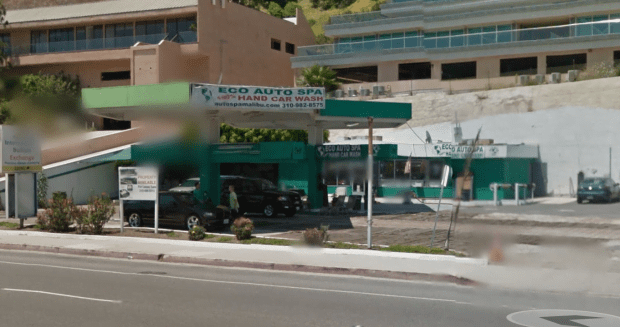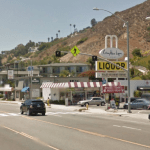
Two years after warnings from the federal government shuttered Malibu’s two medical marijuana dispensaries, the city’s planning department has received applications for permits to open new ones.
Both are on Pacific Coast Highway, at different locations from the previous dispensaries, but one application is from an operator of one of the closed sites. James Erickson, who ran the former Malibu Collective Caregivers, is listed as the “applicant/contact” for a conditional use permit (CUP) to open Malibu Community Collective on the property now also occupied by Colony House Liquors. Also listed on the application, as the “tenant/contact,” is Stephen Braverman.
The other CUP is sought by developer and engineer Norm Haynie for an office building now used by the Eco Auto Spa car wash on PCH, south of Kentucky Fried Chicken.
In 1996, California voters passed Proposition 215, also known as the Compassionate Use Act, which authorizes marijuana for medical purposes. Federal law, however, makes the sale and distribution of marijuana illegal, which led to the 2012 countywide crackdown, including the dispensaries in Malibu, by U.S. attorneys in California.
According to Malibu’s municipal code, only two medical marijuana dispensaries are allowed to operate in the city at one time. The CUPs issued to the closed dispensaries, Malibu Collective and PCH Collective, are still in effect, so they must be revoked before the new applications can be processed, said Stephanie Hawner, associate planner for the city.
The planning department has seen an uptick in informal inquiries about permits for medical marijuana dispensaries in recent months, planning director Joyce Parker-Bozylinski said.
Karen O’Keefe, director of state policies for the Marijuana Policy Project, an organization that supports marijuana legalization, said the increase is likely related to an August 2013 memo from U.S. Deputy Attorney General James Cole to U.S. attorneys that many perceived as signifying a dramatic change in federal enforcement policy toward marijuana laws.
The memo, released after voters in Colorado and Washington passed initiatives in 2012 legalizing recreational marijuana, indicated that the federal government might be less hostile about cracking down on states and governments that have enacted laws regulating marijuana-related conduct. Federal investigators will focus instead, the memo said, on eight priorities, including distribution of marijuana to minors, cultivation of marijuana on public lands and diversion of revenue from marijuana sales to drug cartels or gangs.
Amanda Reiman, California policy manager for the Drug Policy Alliance, said that “even in light of this support from the feds, medical marijuana businesses in California remain in jeopardy because we do not have a state-level medical marijuana regulatory program as other states do. Our program is only regulated at the local level. So, when the Feds say they will respect marijuana businesses who are following state law, those in California do not have a state law to follow.”
Malibu city code says the two local dispensaries cannot sell alcohol or tobacco on the premises. Hawner said she had not yet completely reviewed the application for Malibu Community Collective, but thought that because the proposed dispensary would be an additional tenant for Colony House Liquors in a separate space, not inside the store, both would be allowed to operate on the same property.
According to the Malibu municipal code, dispensaries must be more than 1,000 feet apart. The proposed dispensaries meet that rule, but would still be close, at 1,531 feet apart.
Erickson, Braverman and Antoine Alti, who owns Colony House Liquors, did not respond to requests for comment. Haynie said he did not want to comment.
According to California law, marijuana dispensaries are not supposed to be for-profit businesses.
“Medical marijuana dispensary” refers to any “association, cooperative, club, coop, delivery service, collective and any other similar use involved in the sale, possession, cultivation, use and/or distribution of marijuana for medicinal purposes,” the law says.
The law is murky, however, about what constitutes a “cooperative” or “collective.”
State Assemblyman Tom Ammiano (D-San Francisco) and State Sen. Len Correa (D-Santa Ana) have introduced legislation (AB 1894 and SB 1262, respectively) that would create state-level regulation of doctors, dispensaries and cultivation sites associated with medical marijuana.
Reiman said the Drug Policy Alliance hopes AB 1894 will pass, “clarifying the rules for all involved and strengthening the regulations for medical marijuana in California.”

